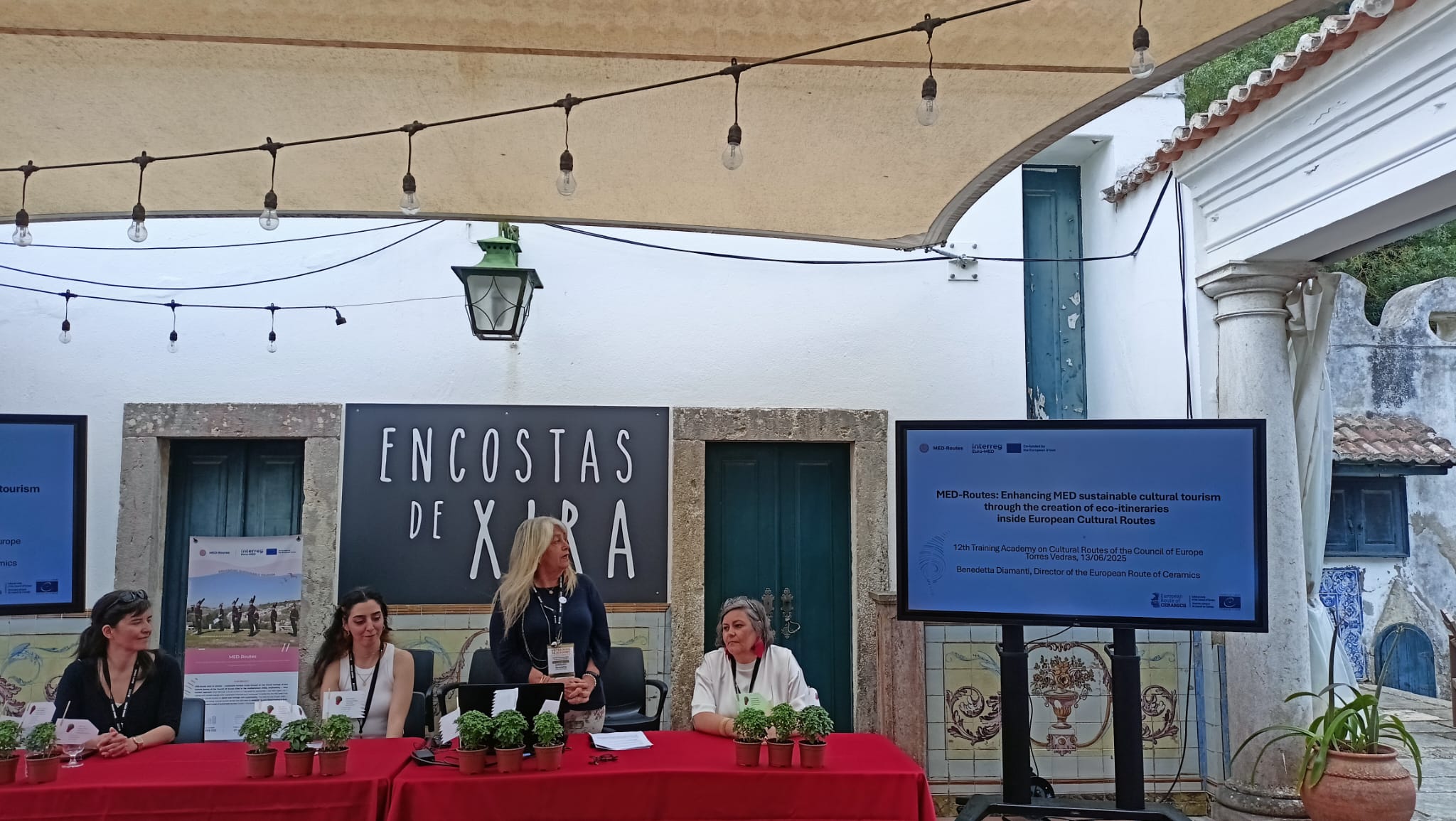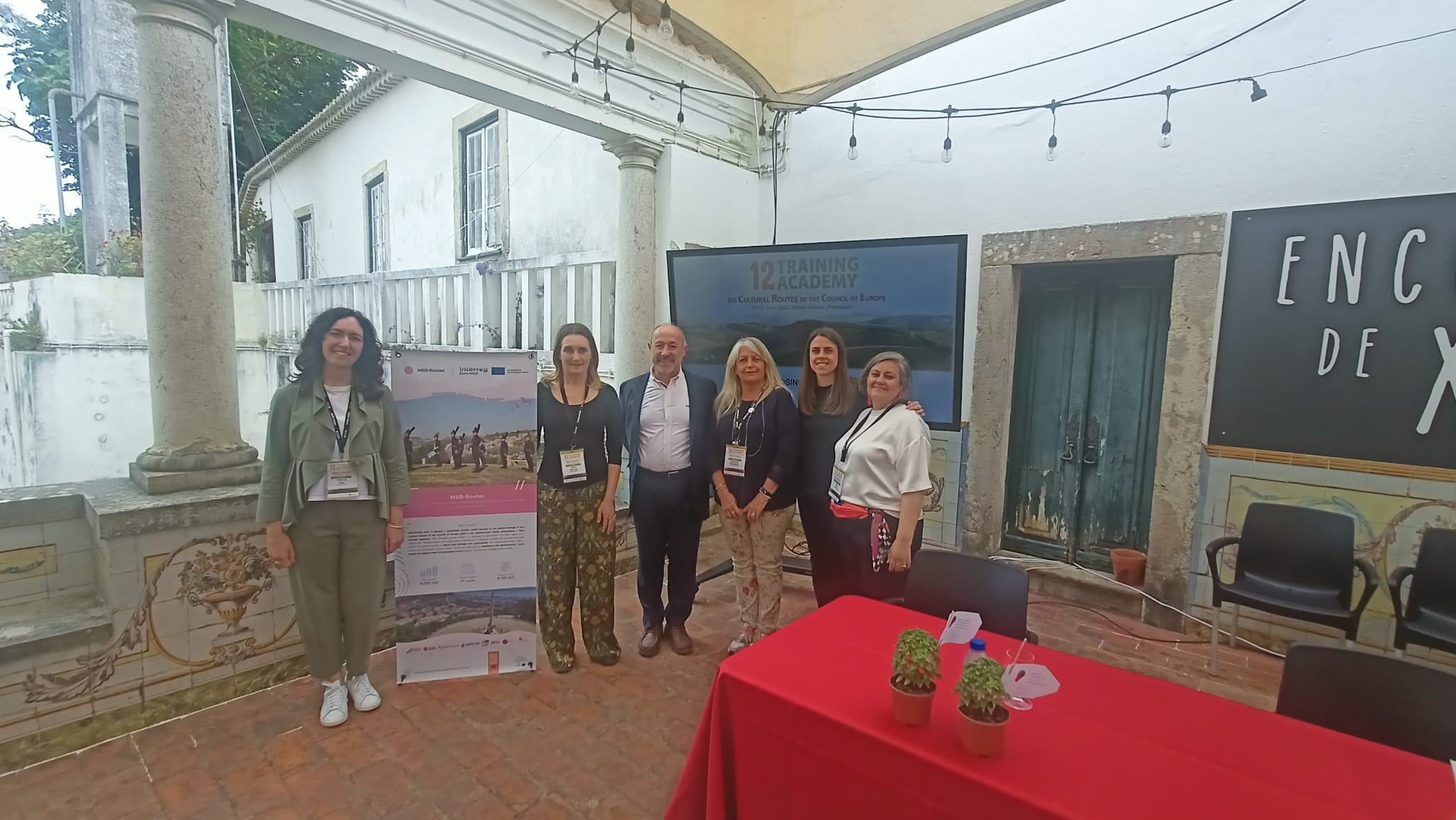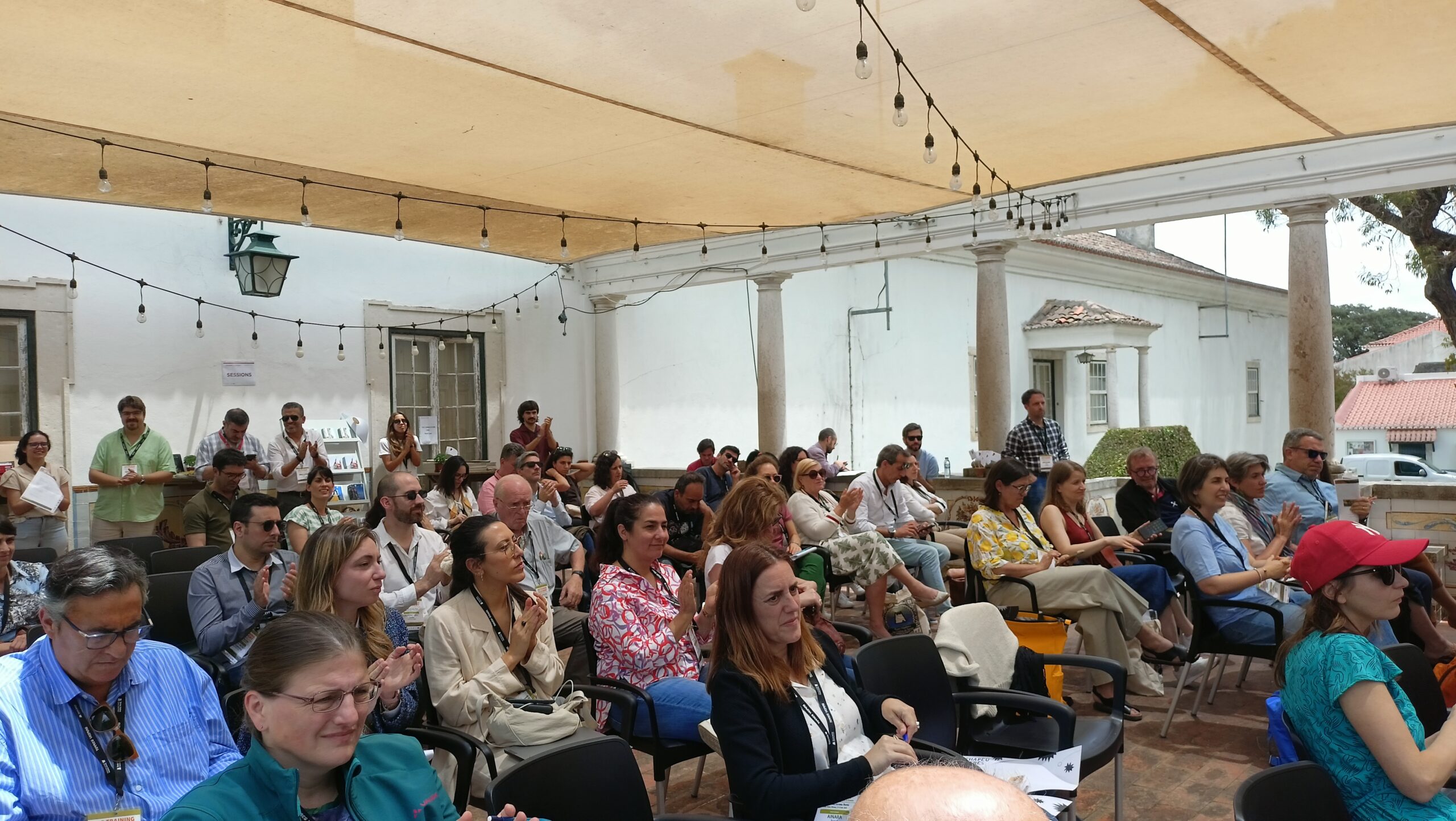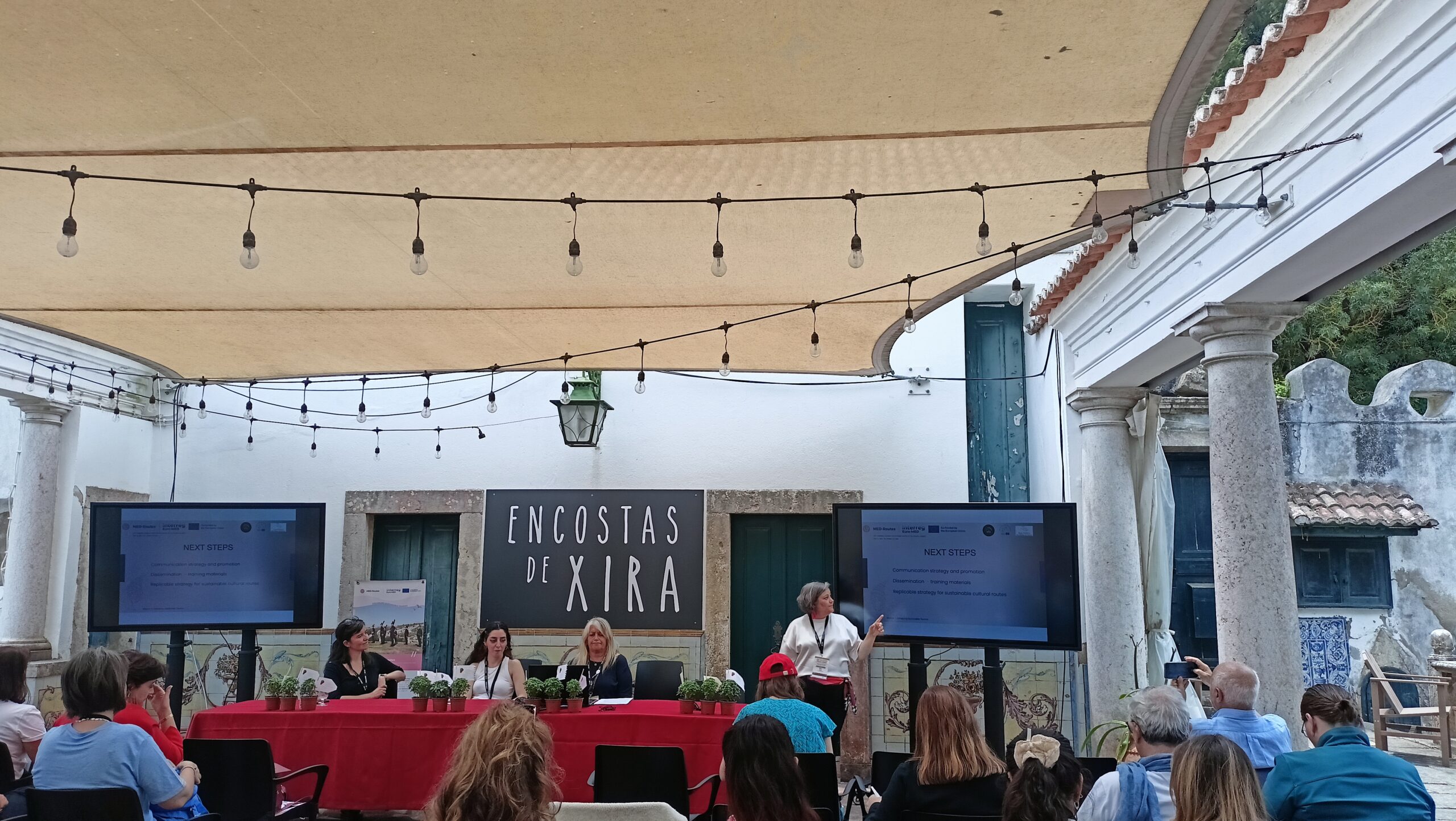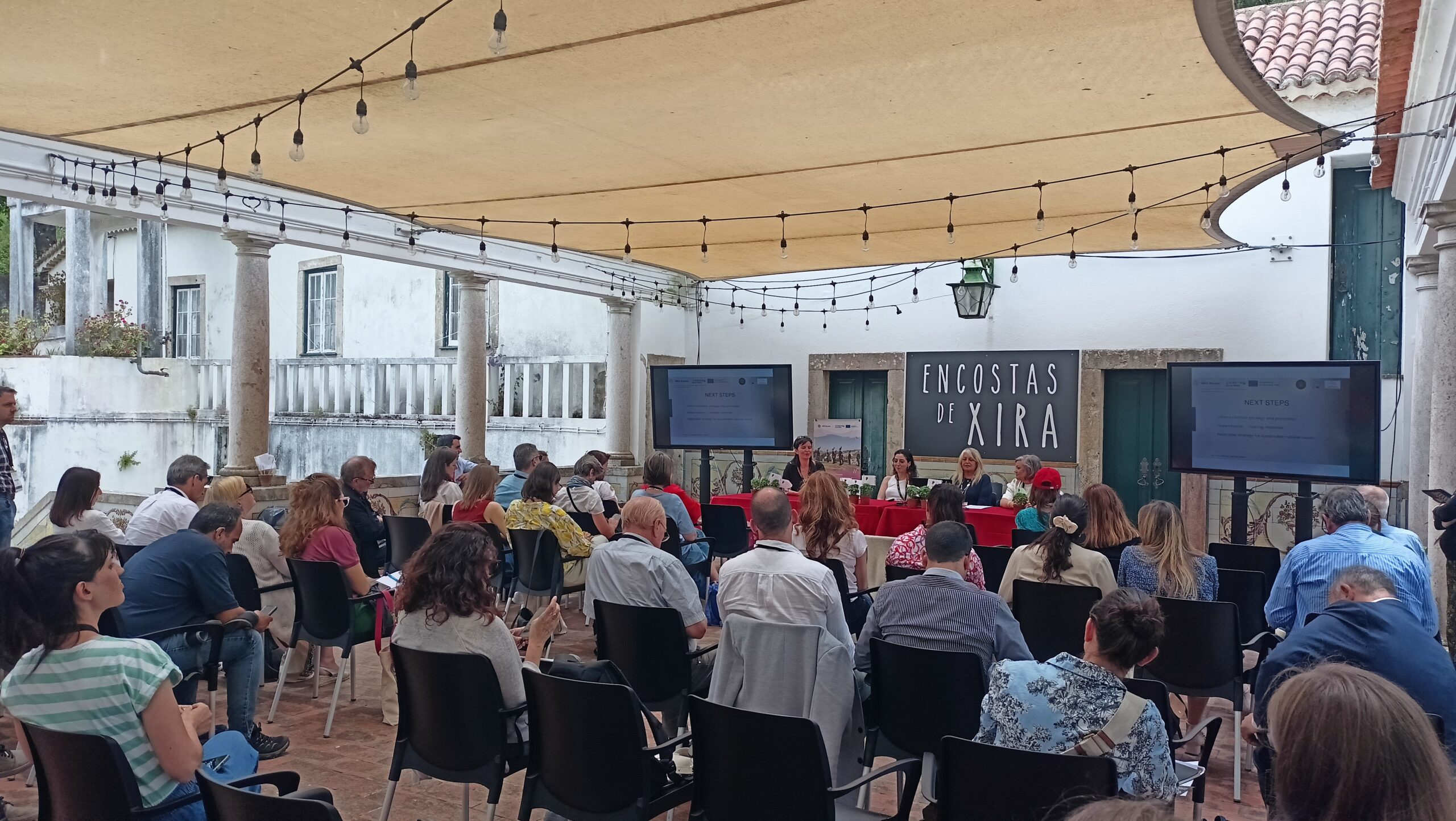The Training Academy offers targeted sessions on current issues in cultural heritage management and tourism, combining expert insights with practical exchanges among Cultural Route operators.
On 13 June, a special session titled “MED-Routes Interreg Euro-MED Project: Challenges and Opportunities for Cultural Routes” took place in Vila Franca de Xira, at Quinta de Subserra. Speakers included:
- Benedetta Diamanti, Director of the European Route of Ceramics and Head of Culture, Tourism, Sport, and International Relations at URF
- Júlia Reis, Head of Division, Municipality of Vila Franca de Xira
- Denise de Roux, EU Projects, Destination Napoleon
Benedetta Diamanti introduced the MED-Routes project, outlining its main achievements. Among the most tangible results are two small-scale eco-itineraries developed for each participating Cultural Route. Rooted in local heritage, these itineraries promote environmental awareness and low-impact travel.
A key element of the project was the creation of a shared methodology. Local tourism stakeholders were engaged through participatory workshops, contributing to the design of the itineraries and identification of existing best practices in sustainable tourism. This process was complemented by a set of common criteria developed by the project partners.
Diamanti also emphasised the project’s joint promotion strategy, particularly the launch of a “Green Label” certification. This label recognises sustainability standards, raises awareness around responsible tourism, and increases the visibility of the new itineraries, encouraging wider adoption.Júlia Reis followed with a presentation of Vila Franca de Xira’s local experience in developing its eco-itinerary. Denise de Roux then offered insights from the perspective of a Cultural Route partner, emphasising the importance of making the methodology replicable for other members beyond the project’s duration. After the session, participants had the opportunity to test part of the new eco-itinerary in Vila Franca de Xira and offer feedback on their experience.
Together, their contributions illustrated the real benefits of the MED-Routes methodology, showing how cooperation across regions and networks can generate long-lasting, sustainable impact. MED-Routes also demonstrates how multiple Cultural Routes can join forces in a common project, as seen also in the co-organisation of the Training Academy by Iter Vitis and Destination Napoleon, with support from the Historic Cafés Route.
The roundtable gathered representatives from numerous Cultural Routes, political and technical experts alike, together with representatives from the European Institute of Cultural Routes offering a valuable opportunity to inform policymakers and key stakeholders about the MED-Routes initiative and initiate dialogue on replicating the model and ensuring its long-term impact.
The session sparked strong interest and participation, with many eager to explore future collaboration.
